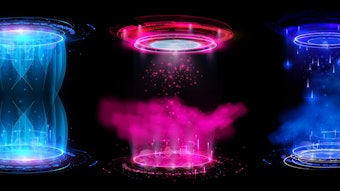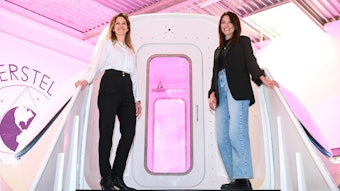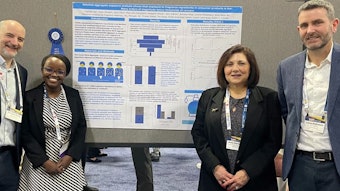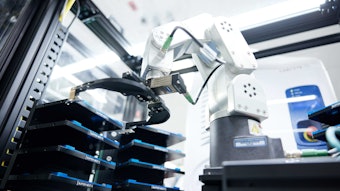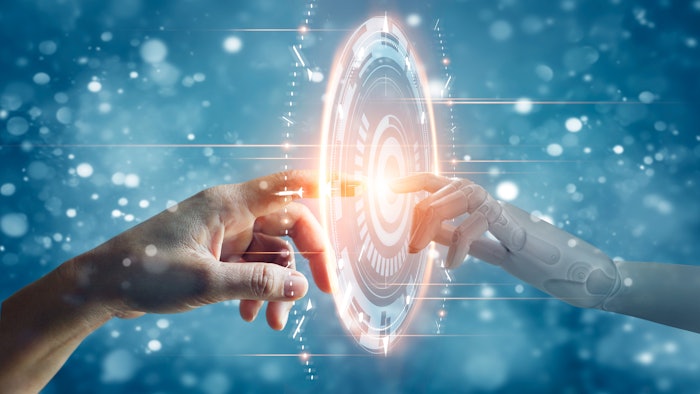
Software is eating the world and now it has recently begun smelling it as well. The fragrance industry is starting to go through deep digital transformation processes that address its core competencies, and naturally so, is thus very affected by artificial intelligence (AI). In contrast to information-based industries such as finance and insurance, fragrance took longer to undergo digital transformation because entry barriers for startups and innovation, in general, are higher. CapEx (capital expenditures) involving chemical compounds and labs, together with higher OpEx (operational expenditure) for interdisciplinary talent, make it less susceptible to disruption.
Fragrance is more difficult to digitize because there is less academic applied olfaction research work offering technologies ripe for commercialization; and because olfactory nomenclature is limited and less articulated than other senses. The latter not only creates difficulties in generating data sets for AI but also makes it challenging to have AI talent reach the profound subject matter understanding that is so necessary to develop adequate solutions. In addition, the widely common (and justified) perception of perfumery as an art and craft creates a basic distrust for AI solutions in fragrance.
AI in Fragrance
Nonetheless, AI is beginning to penetrate fragrance. Similarly to other industries, it started from applications that are not unique to fragrance, such as analyzing consumer behavior as recorded in e-commerce transactions and social media for the purpose of creating fragrance products that sell better. But also recent years innovations in machine learning, bioinformatics, and drug discovery have posed an opportunity to develop AI models that touch the core of fragrance design and formulation and can actually make computers sense and articulate olfactory perception. Publicity of such innovation made stakeholders in fragrance more open to risk resources for progress.
The integration of AI in core fragrance capabilities manifests in several types of applications: formula-to-brief recommendation, formulation, sensing and new molecule design. The formula-to-brief recommendation is the ability to match existing fragrance formulas to new briefs. It enables fragrance houses to match formulas out of their 50,000+ formula portfolios to new customer briefs that could benefit existing non-exclusive formulas and enable fragrance houses to continue monetizing them.
From a perfumer’s perspective, AI formulation is not going to replace the perfumer but rather empowers and enables through decision support.
AI formulation is the ability to generate fragrance formulations and reformulations using software that predicts their perceptual impact. This is highly challenging as perfumery arithmetic is nonlinear in a nonlinear way: 1+1 equals sometimes 3 and sometimes 0. It is also difficult because creating standardized perceptual data sets is costly and requires a very particular set of interdisciplinary expertise. However, once operational, the impact of AI formulation is strikingly disruptive: effective malodor control formulas generated in seconds; close-to-identical odor profile reformulation enabling cost, supply chain, sustainability, and regulation formula optimization; fragrance house palette optimization; and personalized perfumery are direct outcomes which can collectively result in hundreds of millions of dollars in the business outcome: cost savings and new revenue. From a perfumer's perspective, AI formulation is not going to replace the perfumer but rather empowers and enables through decision support.
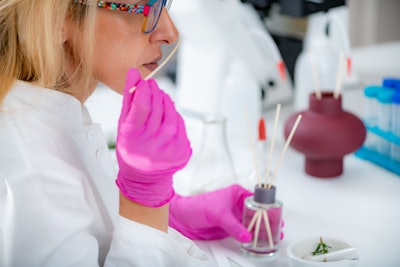 The widely common (and justified) perception of perfumery as an art and craft creates a basic distrust for AI solutions in fragrance.
The widely common (and justified) perception of perfumery as an art and craft creates a basic distrust for AI solutions in fragrance.
Development & Projections
In the future, AI formulation may be complemented by the nascent attempts to use AI to engineer new fragrance molecules, though that kind of capability is still highly experimental.
Recent development in small sample VOC sensors, aka e-noses, in combination with AI processing, has led to early abilities to predict how actual fragrance samples will be felt by a human nose. The impact of perceptual e-nose sensing will affect quality control and new fragrance product development as they could potentially take away a significant operational cost for human evaluators who are limited in their capacity to sensorily assess scent on a large scale.
And lastly, a further horizon development that would impact the fragrance industry is scent teleportation. In Moodify’s vision, scent teleportation is the ability to communicate scent digitally and deliver it in a device no larger than a standard Bluetooth desktop speaker, thus creating a new dimension of scent to multimedia. Scent teleportation would be enabled by sets of primary scents, varying combinations of which will create multitudes of scent experiences. It is still difficult to fathom how scent teleportation would impact the fragrance industry, but at the point of mass market adoption, a surge in demand for primary scents will encompass a significant opportunity for fragrance houses.
Visit Perfumer & Flavorist+'s June 2023 issue to see the article in the digital magazine.
